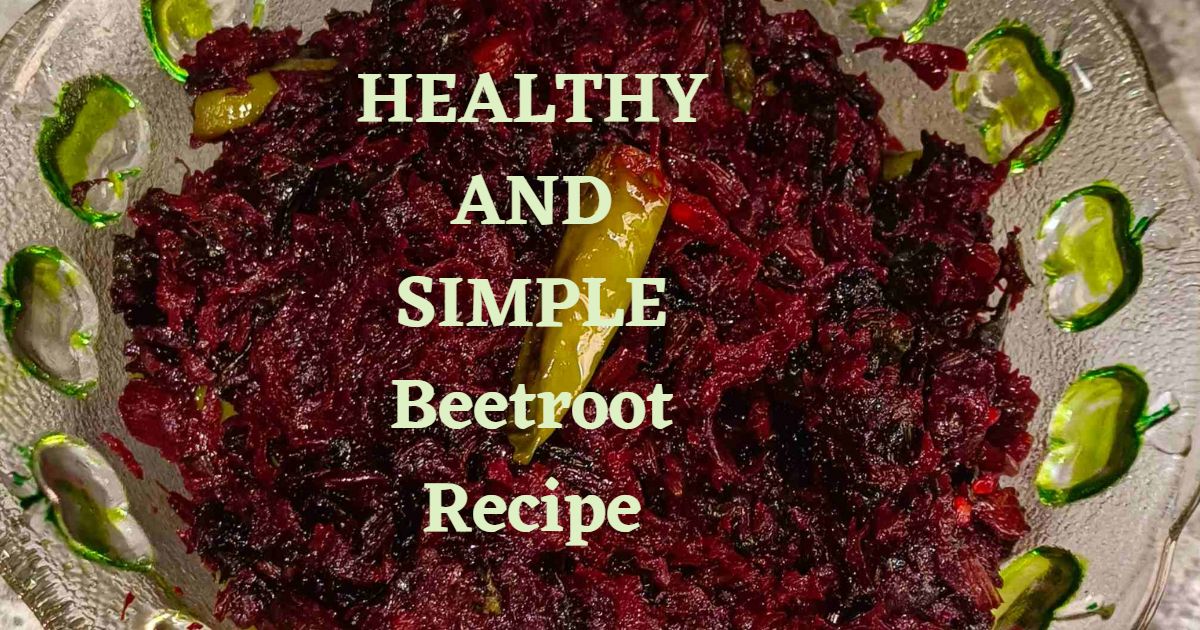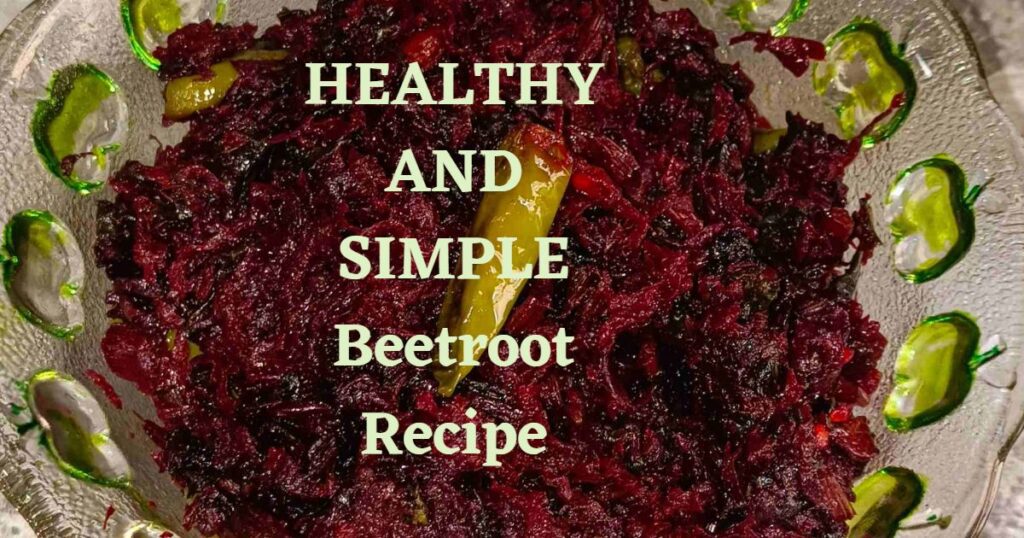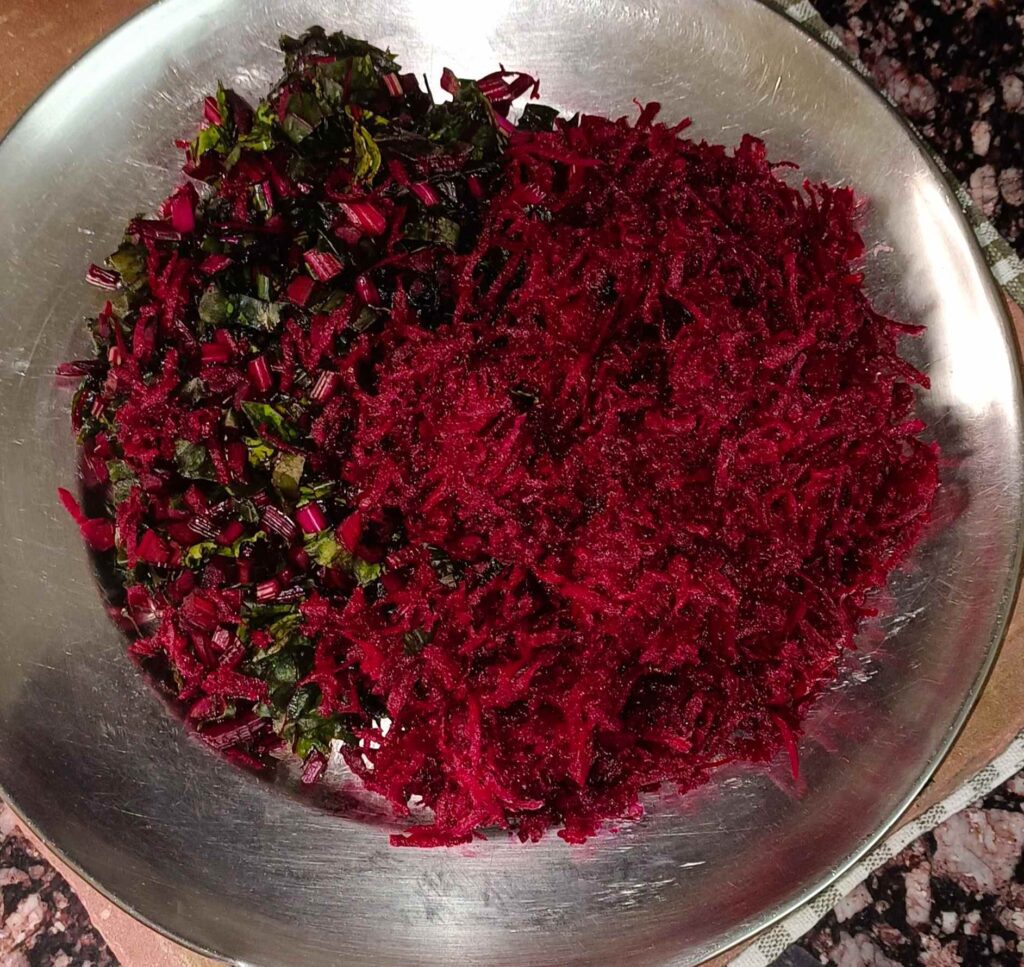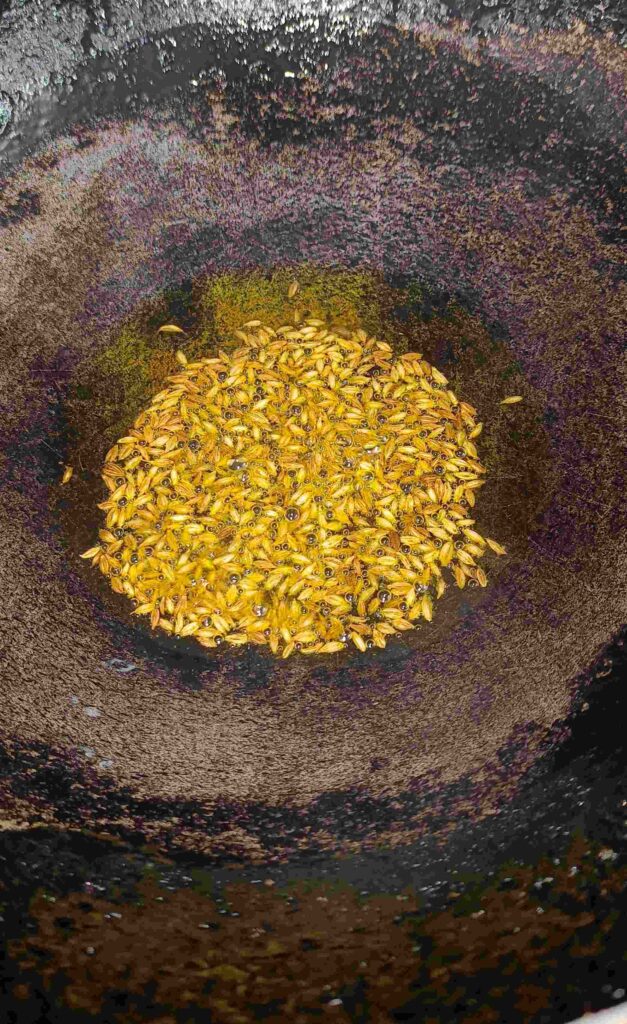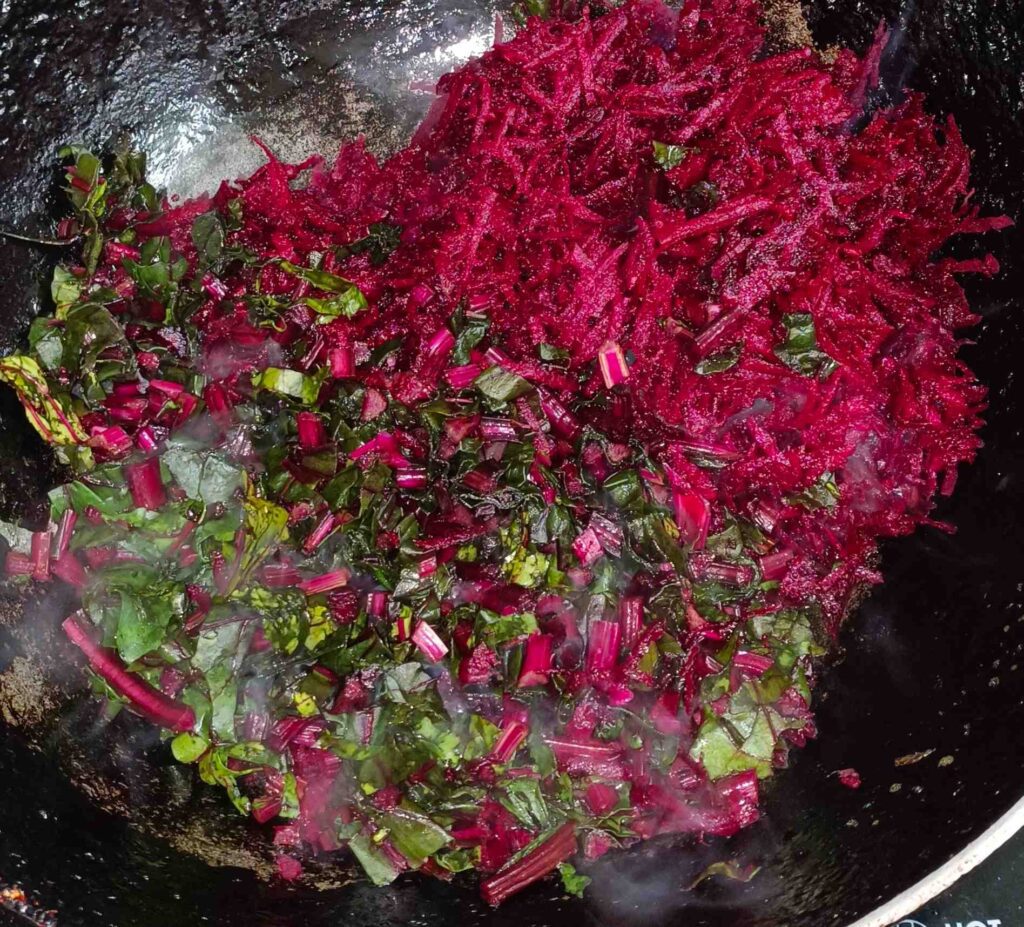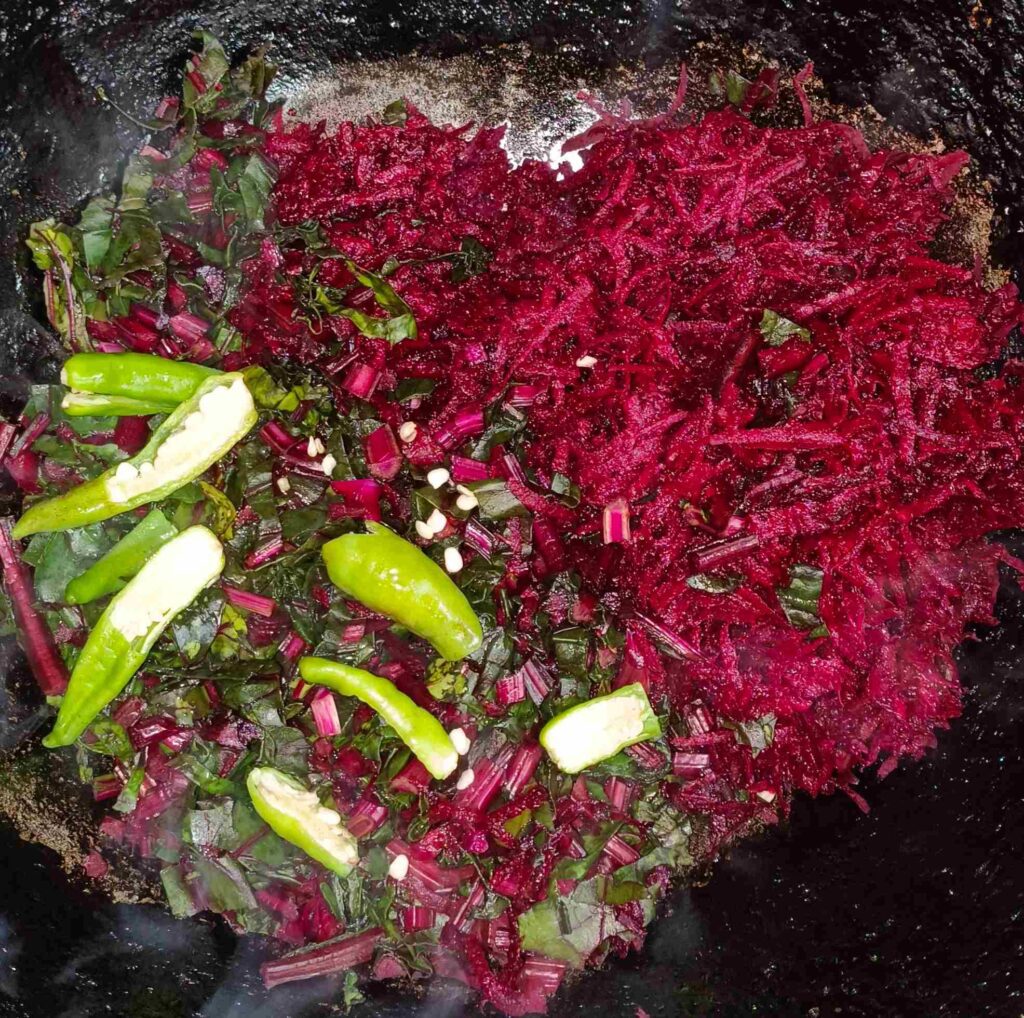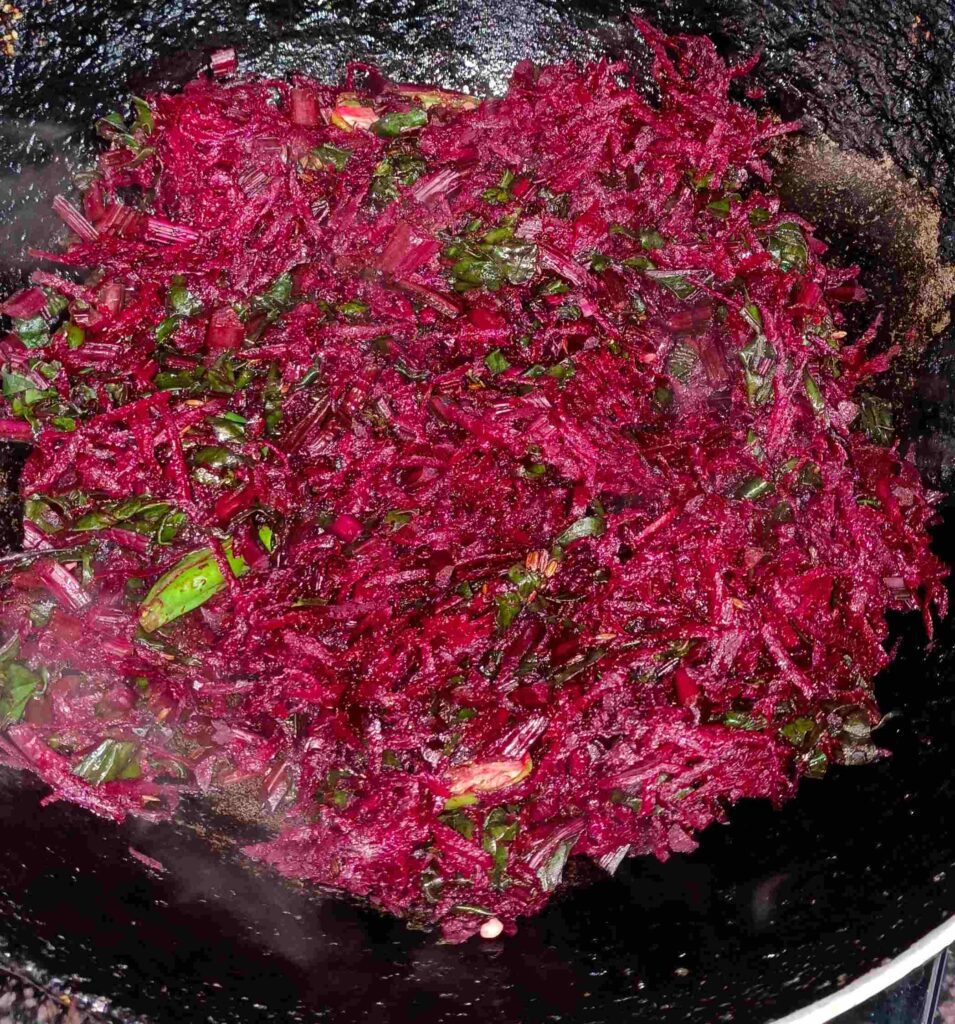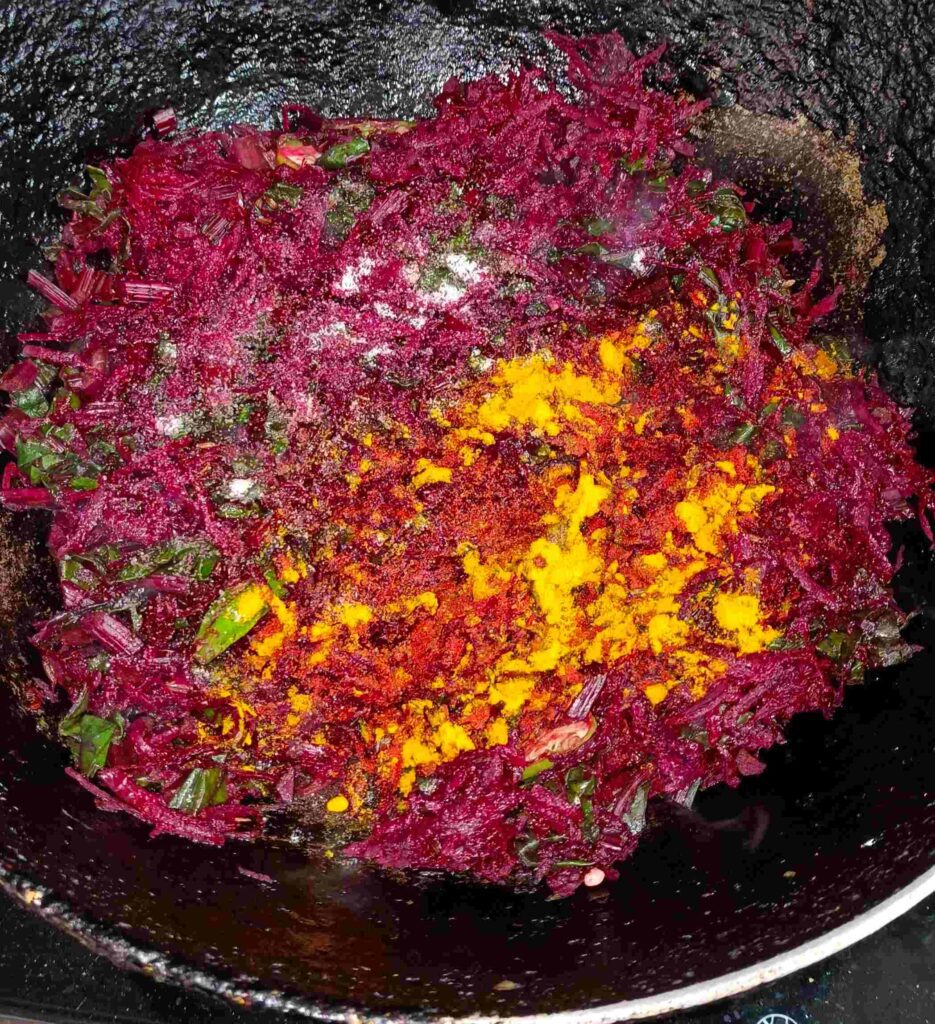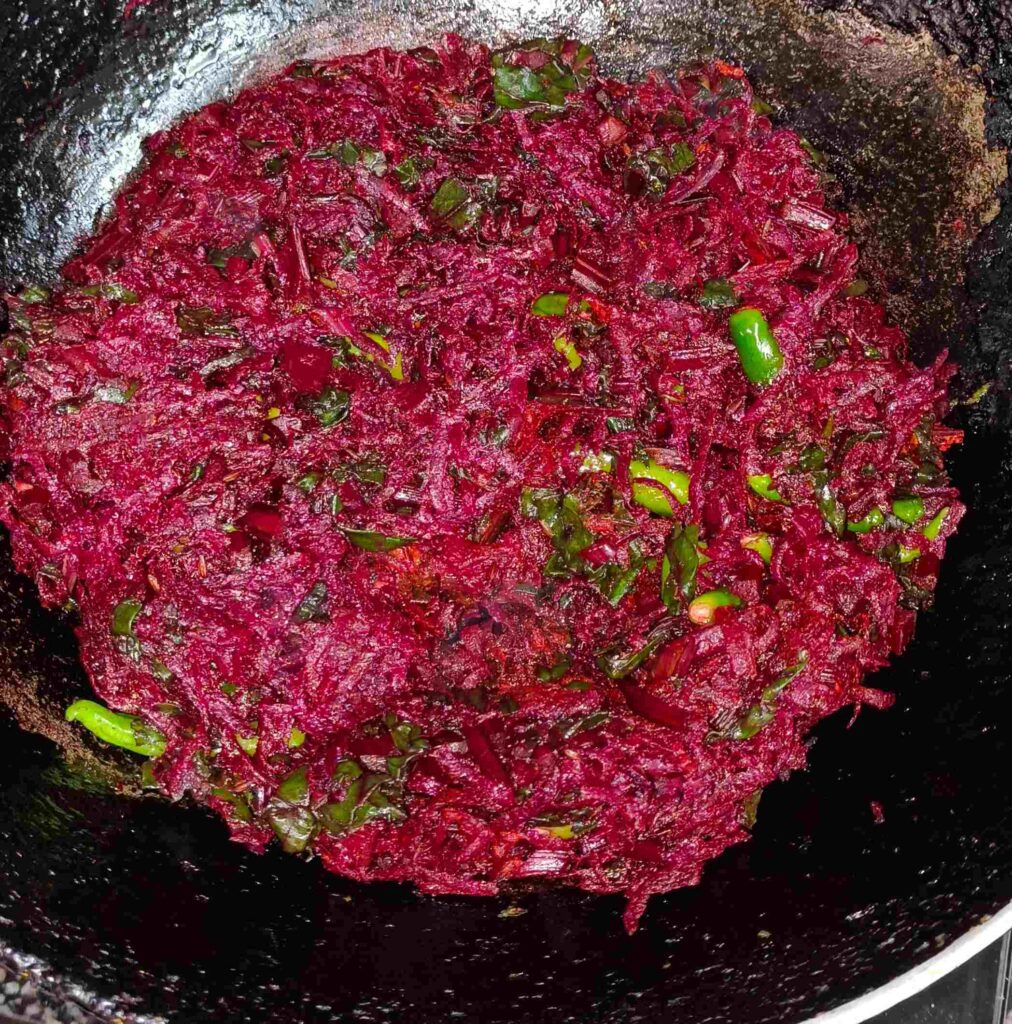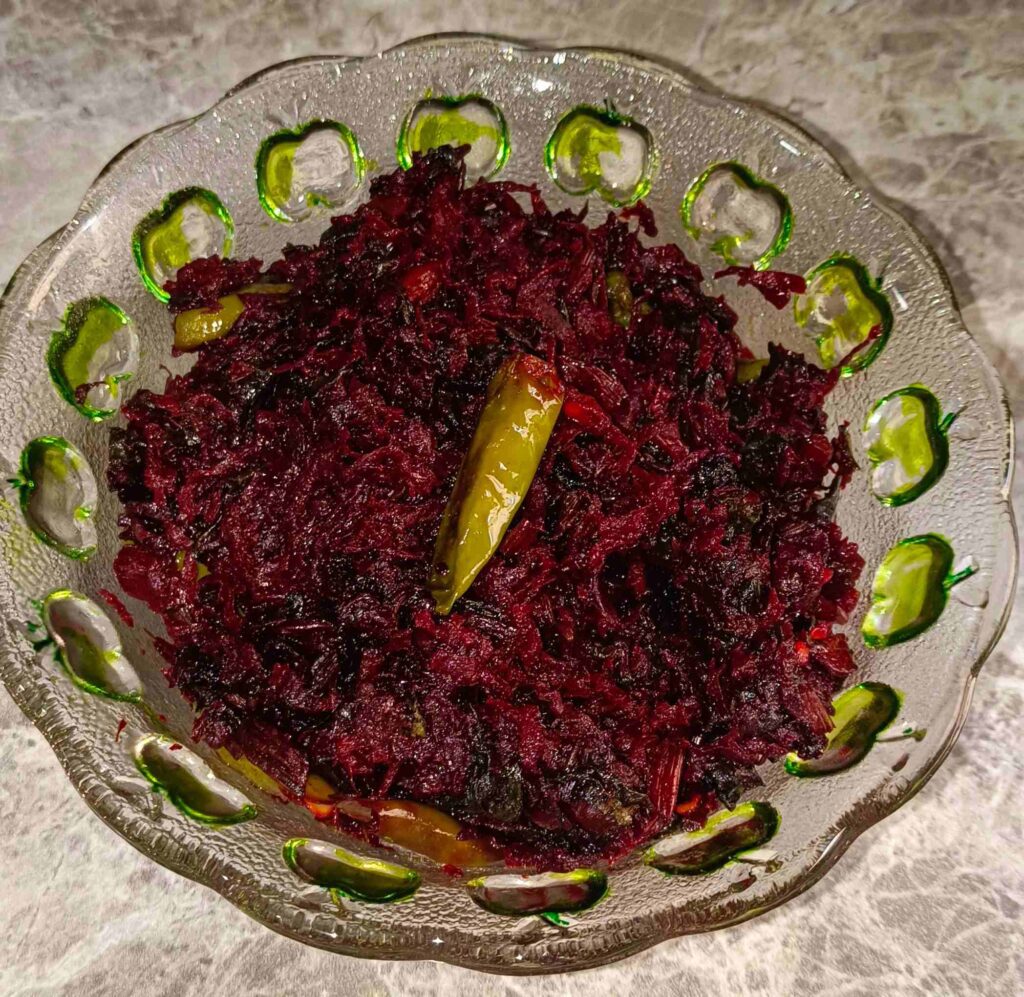Beetroot Bhaji is a versatile and healthy vegetable that is often overlooked in many home kitchens. It’s used in salads, delicious when cooked as a stir-fry.
In this article, we will share a beetroot stir-fry recipe that is simple, healthy and bursting with flavor.
Beetroot Bhaji | Beetroot Recipe | Beetroot Stir Fry
Beetroot Bhaji is a delicious and healthy dish that is easy to prepare and bursts with flavor. It’s an excellent way to incorporate this nutritious vegetable into your diet and enjoy its many health benefits.
How to make Beetroot Bhaji
In this recipe, we’ll show you how to prepare Beetroot Bhaji from scratch using fresh and simple ingredients, making it a perfect option for a quick and easy snack or side dish. So let’s get started and explore the world of beetroot bhaji together!
Preparation Time: 10 mins
Cooking Time: 10–15 mins
Ingredients:
To make beetroot stir-fry, you will need the following ingredients:
- 3-4 large beetroots with leaves
- 2-3 green chili
- 2 tbsp cooking oil
- 1 tsp cumin seeds
- 1/2 tsp turmeric powder
- Salt according to taste
- Fresh coriander leaves for garnish if you want
Method:
- Cut the leaves from the beetroot and then peel the beetroot.
- After peeling the beetroot, wash them with leaves.
- Chopped the leaves and grated the beetroot.
- Heat oil in a pan on medium heat. Once the oil is hot, add cumin seeds and let them sizzle for a few seconds.
- Add chopped beetroots
- Now add green chili
- Mix well. Cook for 8–10 minutes on a slow flame, stirring occasionally, until the beetroot is cooked through and tender.
- Add turmeric powder, and salt to taste.
- Mix well and cook for another minute.
- Now Beetroot bhaji is ready.
- Garnish with fresh coriander leaves and serve hot.
Tips:
- When buying beetroots, look for firm and smooth-skinned beetroots.
- To make the dish spicier, increase the number of green chilies.
- You can also add other vegetables of your choice, such as carrots or green beans, to the stir-fry.
Nutritional Value Of Beetroot Recipe
Beetroot Recipe is a highly nutritious root vegetable that is loaded with essential vitamins, minerals, and antioxidants. Here are some of the key nutritional values of beetroot:
1. Vitamins: Beetroot is an excellent source of vitamins like vitamin C, vitamin B6, folate, and vitamin K. Vitamin C helps boost the immune system, while folate is essential for healthy fetal development in pregnant women.
2. Minerals: Beetroot is rich in minerals like potassium, manganese, magnesium, and iron. Potassium is important for healthy blood pressure, while iron is essential for the formation of red blood cells.
3. Antioxidants: Beetroot is packed with antioxidants like betalains and anthocyanins, which help protect the body against oxidative stress and inflammation. These antioxidants also give beetroot its vibrant red color.
4. Fiber: Beetroot is a good source of dietary fiber, which can help improve digestion and prevent constipation.
5. Low in calories: Beetroot is low in calories, making it an ideal food for those looking to lose weight or maintain a healthy weight.
6. Nitrate: Beetroot contains high levels of nitrates, which can help improve blood flow and lower blood pressure.
Overall, beetroot is a highly nutritious and versatile vegetable that can be enjoyed in a variety of ways. Whether roasted, boiled, or blended into a smoothie, adding beetroot to your diet is an excellent way to boost your nutrient intake and support your overall health.
Disadvantages of Beetroot Recipe
While beetroot is a highly nutritious vegetable that can provide numerous health benefits, there are some potential disadvantages to consider. Here are some of the disadvantages of beetroot:
High sugar content: Beetroot is relatively high in natural sugars, which can be problematic for people with diabetes or other conditions that require careful management of blood sugar levels. Consuming too much beetroot could cause blood sugar levels to spike, leading to complications.
Oxalate: As mentioned earlier, beetroot contains oxalate, which can contribute to the formation of kidney stones. People with a history of kidney stones may need to limit their intake of beetroot to avoid exacerbating the problem.
Interference with medications: As also mentioned earlier, beetroot contains vitamin K, which can interfere with the effectiveness of blood-thinning medications like warfarin. This means that people taking these medications may need to avoid beetroot or limit their intake to avoid potential complications.
Staining: Beetroot can stain clothes, cutting boards, and other surfaces. While this is not a health-related disadvantage, it can be inconvenient and difficult to clean.
Digestive issues: While the beetroot is a good source of fiber, high fiber intake can cause digestive issues like bloating, gas, and diarrhea in some people.
In general, the disadvantages of beetroot are relatively minor and can be avoided or minimized with careful consumption and preparation. However, if you have any concerns or underlying health issues, it’s best to speak with your healthcare provider before adding beetroot to your diet.
Who Avoids Beetroot Recipe
While beetroot is a highly nutritious vegetable that can provide numerous health benefits, there are some people who may need to avoid it. Here are some groups of people who may need to limit or avoid beetroot consumption:
People with kidney stones: Beetroot contains oxalate, which can contribute to the formation of kidney stones. People who have a history of kidney stones or are at risk of developing them may need to limit their intake of beetroot.
Low blood pressure: Beetroot contains nitrates, which can lower blood pressure. While this can be beneficial for people with high blood pressure, it can be problematic for those with already low blood pressure.
People with digestive issues: Beetroot is a good source of fiber, which can help promote digestive health. However, for some people, high fiber intake can cause digestive issues like bloating, gas, and diarrhea. If you have digestive issues, you may need to limit your intake of beetroot or other high-fiber foods.
People taking blood-thinning medications: Beetroot contains vitamin K, which can interfere with the effectiveness of blood-thinning medications like warfarin. If you are taking blood-thinning medications, you should speak with your healthcare provider before adding beetroot to your diet.
People with allergies or sensitivities: Some people may be allergic to beetroot or have a sensitivity to it. Symptoms of a beetroot allergy or sensitivity can include hives, itching, swelling, and difficulty breathing. If you experience any of these symptoms after consuming beetroot, you should seek medical attention immediately.
In general, Beetroot Recipe is a safe and healthy vegetable that can be enjoyed in moderation by most people. However, if you have any concerns or underlying health issues, it’s best to speak with your healthcare provider before adding beetroot to your diet.
Conclusion:
Beetroot stir-fry is a delicious and healthy dish that is easy to prepare and bursts with flavor. It’s an excellent way to incorporate this nutritious vegetable into your diet and enjoy its many health benefits. Try this recipe today and discover how tasty and versatile beetroot can be!
